
SDG 10: Reduced Inequalities 2025 Report
SDG 10 - Reduced Inequalities
Reduce inequality within and among countries
The University is committed to reducing inequalities by widening access to Higher Education through targeted recruitment of underrepresented groups, and non-discriminatory admissions. We actively promote equality through initiatives like the Athena SWAN and Race Equality Charters, inclusive student and staff networks, mentoring programmes, and our role as a Disability Confident Leader. Our global research partnerships also help address inequality, including work with marginalised communities and social entrepreneurs.
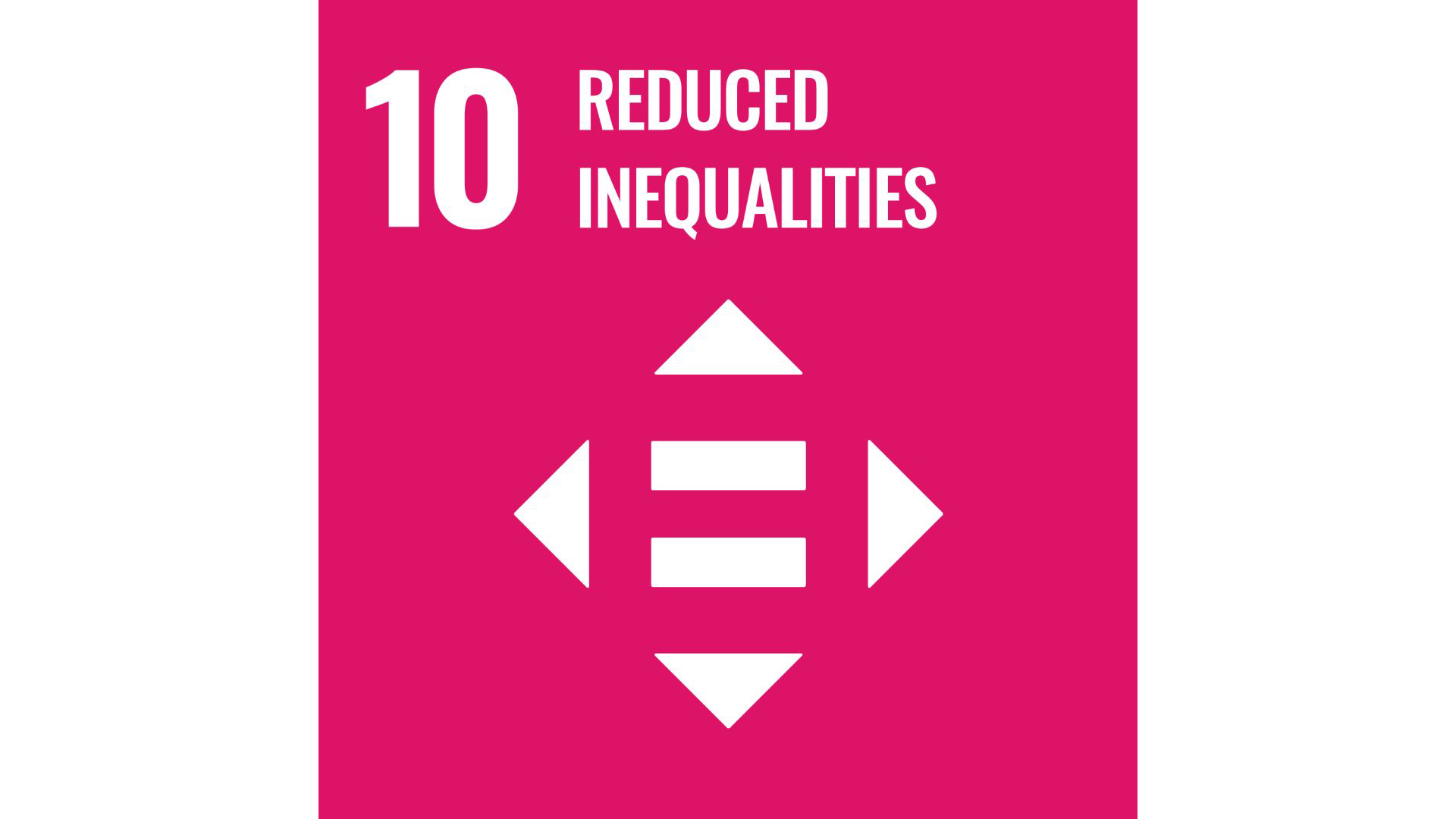
1st in the world: Times Higher Education Rankings 2025
We’re ranked 1st in the world for Reduced Inequalities in the Times Higher Education Impact Rankings for 2025, reflecting the work of our university to widen opportunities for students from all backgrounds, both within the UK and around the world.
Learning for students
First-generation students
At the University we are proud of our continuing record in giving people opportunities in Higher Education, especially where they might be the first in their family to have this chance. In 2023/24, 1,349 of those who began first degrees with us were from families where neither parent had experience of higher education, representing 64% of those for whom data were available.
Students from developing countries
This extension of opportunity applies internationally too, with many of our international students coming from countries classed as low or low-middle income by the World Bank. In many cases, these students are supported by fee-reduction scholarships. The significance of this effort is reflected in the extent of the market share held by the University in many of the largest of these country-markets.
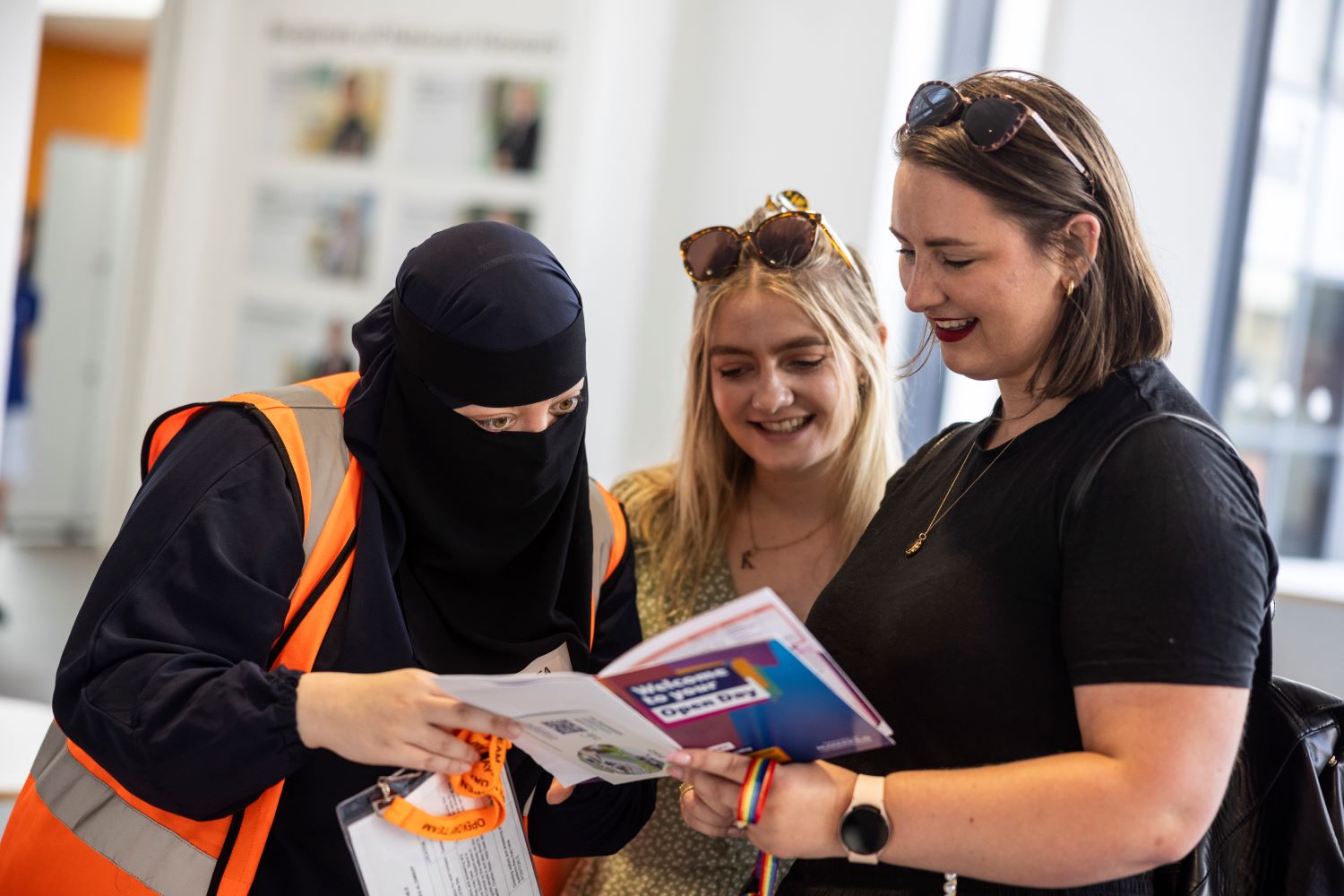
Widening access to Higher Education
Non-discriminatory admissions policy
The University has a non-discriminatory Admissions Policy (reviewed January 2024) publicly available on our website. It states that the University’s admissions process ‘is transparent, fair and consistent regardless of age, disability, gender re-assignment, marriage and civil partnership, pregnancy and maternity, race, religion, and belief, sex, or sexual orientation’.
Underrepresented groups – tracking applications
The University’s Access and Participation Plan (APP) sets targets for access to the University from underrepresented groups. As part of the APP process, there is measurement and tracking of the performance of these groups in the application process, including from B.A.M.E, female, disabled, white working-class male (and therefore underrepresented) students, and other groups including care-experienced students.
Operations
Underrepresented groups – recruitment
We deliver a range of programmes to recruit both staff and students from underrepresented groups.
- The University is a member of the Race Equality Charter and gained a Bronze Award in 2024 in recognition of its work in identifying and addressing the barriers facing Black, Asian and Minority Ethnic students and staff, and bringing about action and improvement, including around recruitment.
- Programmes to recruit students from underrepresented groups are run by the University’s Schools and Colleges Liaison Service, including, for example, work with schools and colleges in areas of low participation. This includes work with the Progression module, which provides structured support on researching and applying for Higher Education, celebrates success in doing so, and on completion allows those applying to our courses to be awarded with an equivalent in UCAS tariff points.
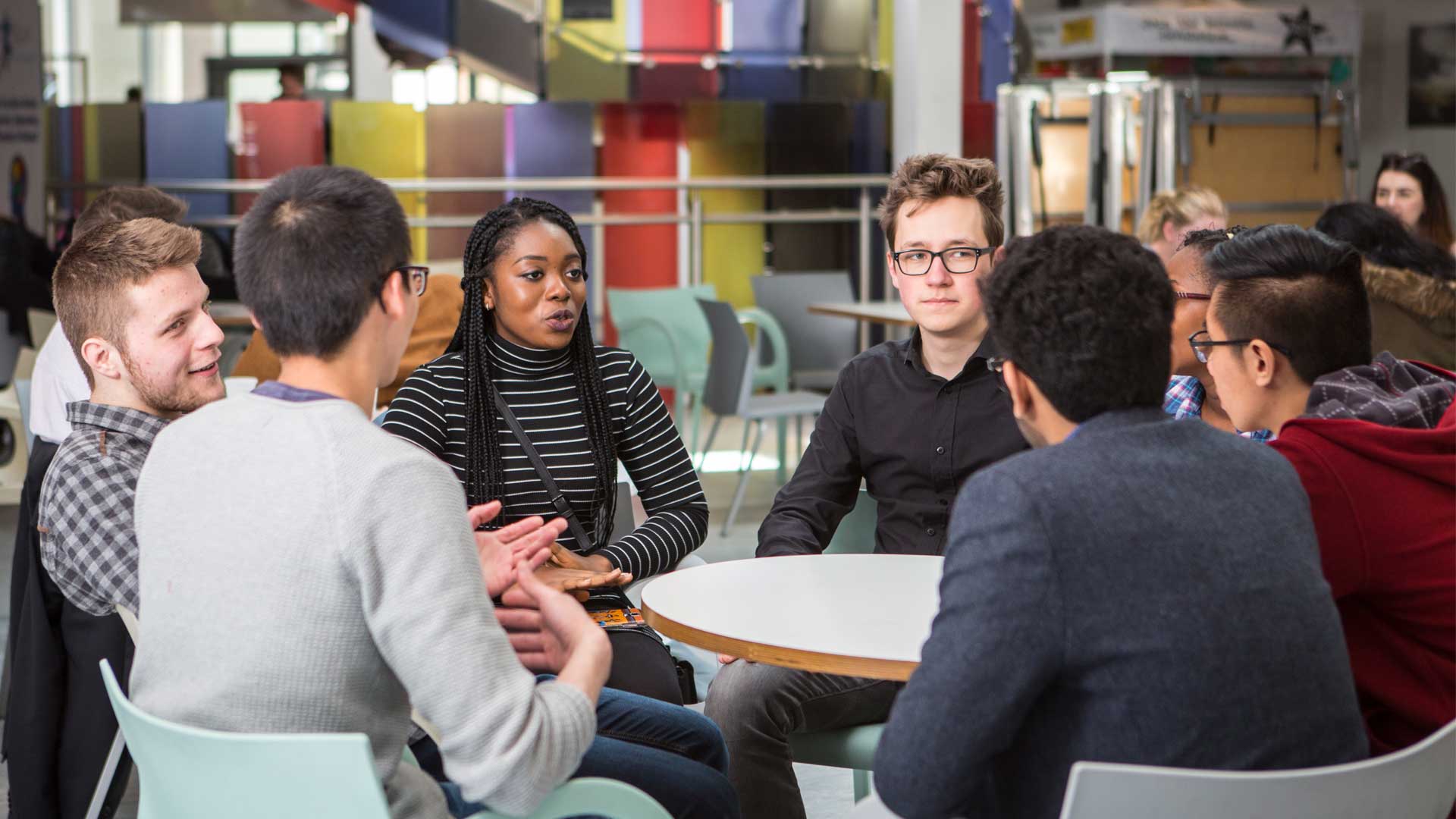
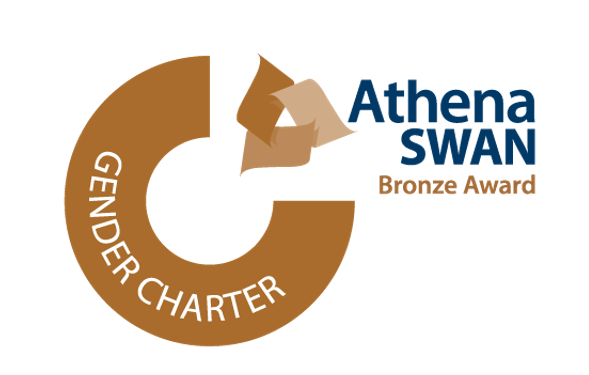
Athena SWAN Charter
Bronze Award
We have policies in place to enable the recruitment, retention and development of female faculty, particularly in areas where they are underrepresented. The University has been a member of the Athena SWAN Charter for gender equality since 2015. The Charter was developed to encourage and recognise commitment to advancing the careers of women in research and academia. It recognises the advancement of gender equality through representation, progression and success for all. In 2020 the University renewed its Bronze Athena SWAN Award for Gender Equality. In addition, four of the five schools that make up the University hold a departmental Athena SWAN Bronze Award, and the School of Applied Sciences holds a departmental Athena SWAN Silver Award.
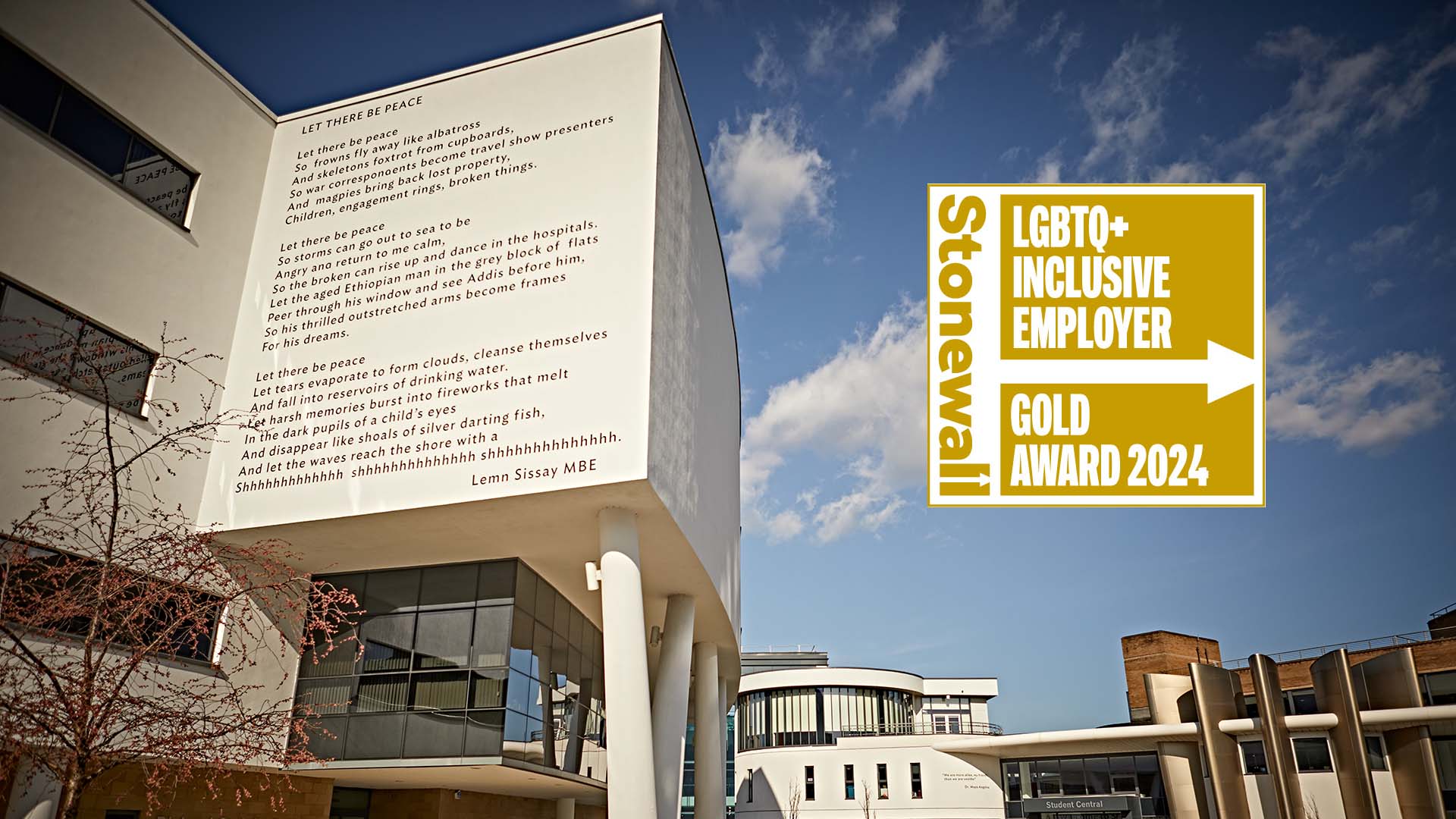
LGBTQI+ Inclusive Employer
Stonewall Gold Award 2024
The University of Huddersfield is delighted to announce that it has achieved a prestigious Stonewall Gold Award, having been ranked the 56th top employer in the UK for LGBTQI+ inclusivity.
Anti-discrimination and anti-harassment policies
The University of Huddersfield has an Equality, Diversity and Inclusivity Policy (reviewed in March 2024), which incorporates specific policies around discrimination and harassment. The policy states that ‘The University does not tolerate any form of unlawful or unfair discrimination and seeks to provide an environment free from discrimination against students, staff, visitors, suppliers, and others on the grounds of sex, race, sexual orientation, religion/belief, disability, or any other protected characteristic. The University also recognises the potential for discrimination on the basis of asylum seeker status and commits to addressing this within regulatory and legal constraints. The University will treat harassment, including sexual misconduct, as a form of discrimination and will seek to eliminate it.’
All allegations of discrimination and harassment are thoroughly investigated through the University’s Grievance and Dignity At Work procedures.
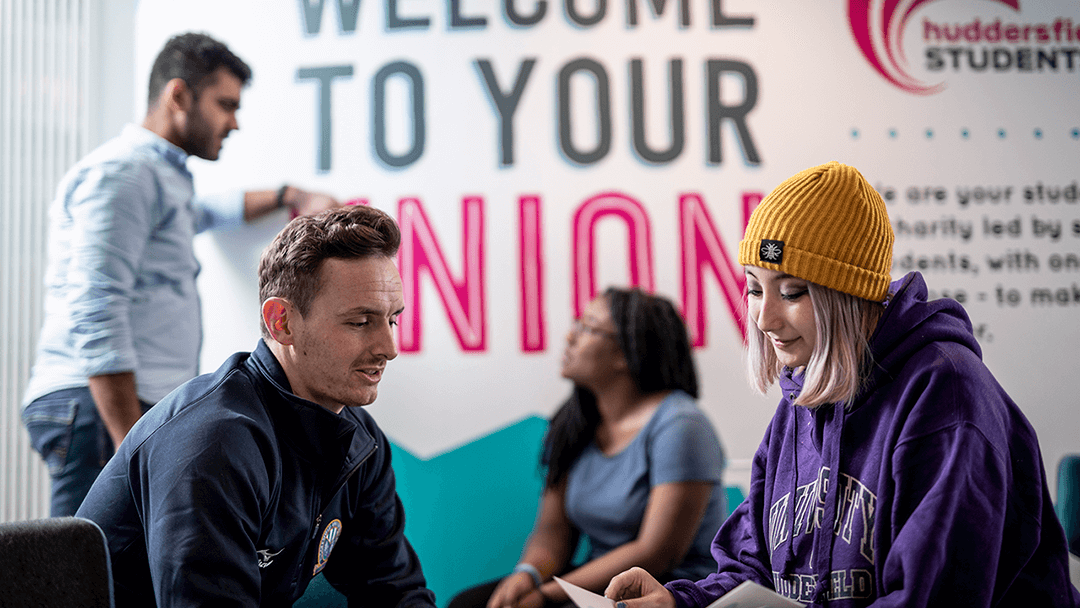
Equality, Diversity and Inclusion Committee
The University has an Equality, Diversity and Inclusion Committee that encompasses the entire domain of student and staff activity across campus. The committee has the responsibility to advise on the necessary policies, programmes, and training related to diversity, equity, inclusion and human rights at the institution.
Support for underrepresented groups
Underrepresented members of the University community have access to mentoring, counselling, and peer support: for example, with care-experienced students through the work of care leaver support coordinators. The University’s Student’s Union hosts six Student Networks for underrepresented groups including B.A.M.E Ambassadors, Disabled Students Network, Global Citizens Network, LGBT+ Network, Women's Network, and the Class and Social Mobility Network. These groups are student-led and work to improve the student experience by advocating for their communities and campaigning for change.
Members of staff also have access to mentoring and counselling through the work of diversity champions and peer support through the Staff networks for Race Equity, LGBTQI+, Women, Disability, Neurodiversity and Inclusive Allies.
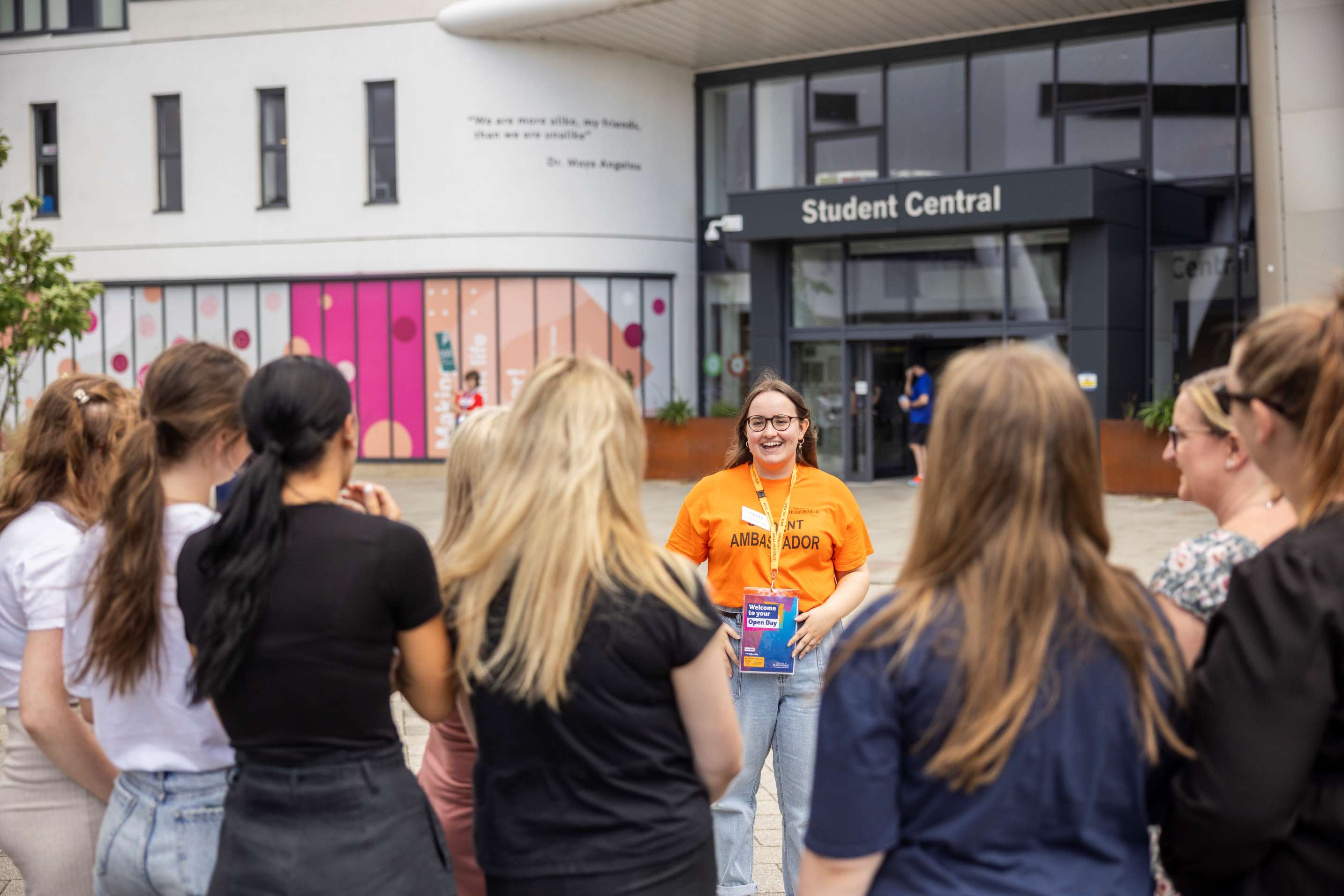
Access and support for those with disabilities
The University’s facilities and services are accessible for people with disabilities, as required by the relevant equalities legislation. A comprehensive Accessibility Guide is available for all staff and students to access online and gives details of accessible routes, disabled parking facilities, the Assistance Dog Policy and building plans highlighting accessible entrances, lifts, refuge points and accessible toilets.
We provide support to students facing a broad range of conditions that may impact on their university life. The University’s Learning Support Service provides Support Workers, Specialist Mentors and Specialist Study Skills Tutors, Library Support, Note takers, Study Buddy's and Exam support to those students who need additional support whilst they study because of the impact of their disability. In addition, the University’s Disability Service provides support through Disability Advisors to help students to identify how their disability or condition impacts their teaching, learning, assessment and access to physical and digital resources, and to help coordinate support and adjustments.
Staff members are further able to access disability support through a dedicated Staff Disability Network and Neurodiversity Staff Group, both of which give staff the opportunity to connect, explore shared experiences and discuss supportive strategies and approaches.

Disability accommodation policy
We have a reasonable accommodation policy for people with disabilities including adequate funding. The University’s Additional requirements and adjustments in examinations for disabled students' policy states that it ‘has a duty under the Equality Act 2010 to make reasonable adjustments so that disabled students are not placed at a disadvantage and to proactively anticipate the needs of disabled students in examination practices.’ In addition, we support students applying for the Disabled Students’ Allowance (DSA), which can fund costs students might have as a direct result of their disability whilst studying.
Our research
The University is home to a variety of research centres and groups dedicated to tackling inequality. One such example is the Just Futures Research Centre, which focuses on understanding the complex challenges faced by children, young people, families, and communities. Through collaborative, co-produced research, the Centre works to develop practical solutions that contribute to creating fairer and more equitable futures locally, nationally, and globally.
Women’s Social Entrepreneurship in NW India
Researchers at the University have been studying how social entrepreneurship is helping to achieve the Sustainable Development Goals (SDGs) in North-Western India. By focusing on entrepreneurs who use traditional culture and food to create jobs, the study found that social entrepreneurship can reduce poverty among women, improve their financial literacy, and promote financial inclusion. It highlighted the need for stronger partnerships between training institutes and universities to support skill development, in line with India’s new education policy.
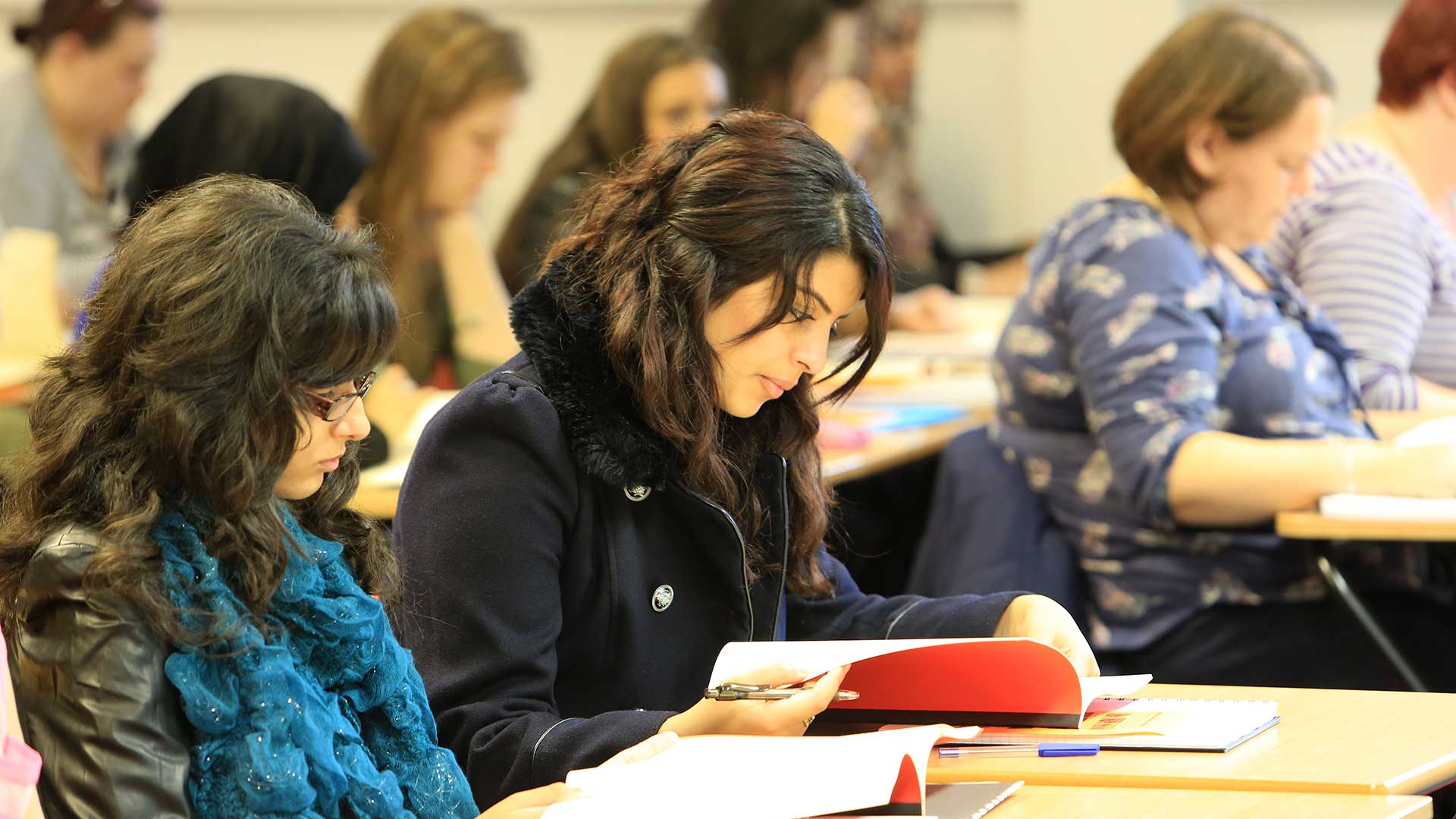
Find further information
Equality, Diversity and Inclusion
We are deeply committed to equality for all students and staff. Explore how we strive maintain a culture of diversity and inclusivity.
Campus accessibility
Learn more about our campus and its accessibility, including maps and accessible routes and building plans.
Student support
We offer various support services for our students. With dedicated staff and resources, we offer a friendly and supportive environment for all.
Sustainable Development Goals
Click to explore our other sustainable development goal pages and get to know how we're working towards these at the University of Huddersfield.